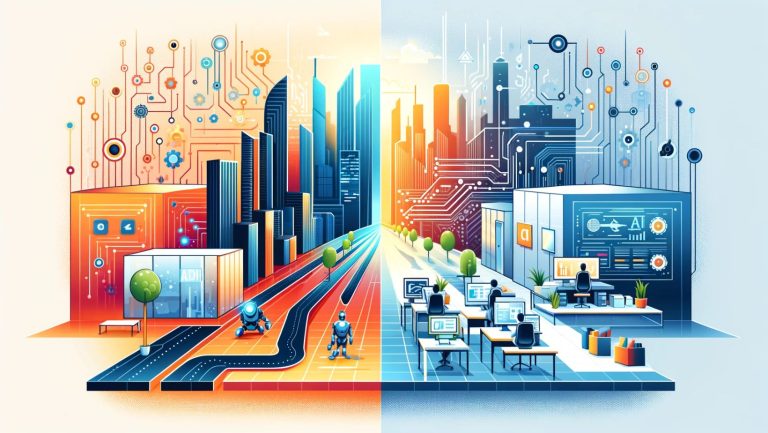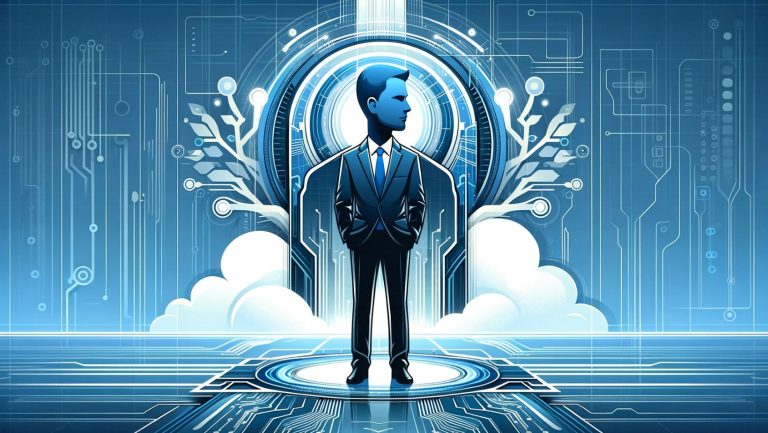One Year of ChatGPT: How It Changed the World
November 30th, 2023 marks one year since OpenAI publicly launched ChatGPT, an artificial intelligence (AI) chatbot that captivated the tech world and public imagination. In just two months, ChatGPT gained over 100 million users, becoming the fastest-growing consumer application in history.
Over the past year, this generative AI system has demonstrated impressive language abilities, helped make AI more accessible, and sparked heated debates on the potential benefits and risks of the technology. As ChatGPT’s first anniversary approaches, it’s worth recapping how this seemingly simple chatbot came to have such a profound influence in such a short period of time.
Key Takeaways
- Released by OpenAI on November 30, 2022, ChatGPT rapidly gained over 100 million users to become the fastest-growing consumer application ever.
- Its impressive language abilities sparked intense competition between tech giants like Google, Microsoft, and Amazon to develop rival AI chatbots.
- Across industries from software to healthcare, companies are implementing ChatGPT to improve workflows, reduce costs, and create new solutions. But risks around bias and privacy necessitate careful deployment.
- As a breakthrough AI technology, ChatGPT has raised pressing governance questions. Groups like the EU and G7 moved to enact early guidelines and principles for the safe development of systems like it.
- On its first birthday, ChatGPT has lost some of its initial mystique but demonstrated enough lasting potential to permanently elevate interest in generative AI that can assist human endeavors.
- Open issues remain around addressing harms, fostering equitable access to benefits, and ensuring this technology aligns with humanitarian objectives as it matures. But ChatGPT has undeniably accelerated us into a new era of AI permeating society.
The Surprise Launch That Shocked Tech
Very few anticipated the launch of ChatGPT on November 30th, 2022. OpenAI itself viewed it mostly as an experimental research preview to gather feedback, not expecting it to gain much traction. Even among those familiar with large language models (LLMs) like GPT-3, the capability of ChatGPT to hold conversations was not seen as especially groundbreaking.
Yet almost overnight, excited users sharing examples of ChatGPT’s impressive language skills caused it to go viral. As media coverage expanded, even casual observers were tempted to try this accessible new AI chatbot for themselves.
“It really wasn’t until ChatGPT was put into the hands of people and they could use it themselves, at scale, that the world woke up to the AI revolution and what is happening,” said AI researcher Simon Willison.
Seemingly everyone, from journalists to developers to students, found uses for this free AI assistant. And the rest of the tech industry took notice, scrambling to prepare rival chatbots.
Sparking an AI Arms Race
ChatGPT’s sudden popularity put generative AI firmly on the radar of Big Tech firms like Google, Microsoft, and Amazon. Fearing their search and cloud dominance could be disrupted by advancements in language AI, they invested billions into the field – while also rushing their own chatbots like Bard and Claude into development.
This kicked off an intense battle over AI talent too, as companies fought to recruit from a limited pool of experts who could help them close the gap with OpenAI. The race also spread internationally, with Chinese tech giants like Alibaba revealing their own ChatGPT competitors.
The pace of innovation accelerated to dizzying speeds. In March 2023, just months after Bard’s shaky debut, OpenAI unveiled GPT-4 – a dramatically upgraded foundation for ChatGPT that reduced hallucinations and improved reliability. Google and others continue pouring resources into competing with it.
“Competition is certainly heating up with conversational chatbots available from others such as Google and Anthropic,” said Gartner analyst Arun Chandrasekaran. “In addition, there has been an explosion in both closed-source and open-source LLMs in the past year, many of which were a response to ChatGPT’s viral adoption.”
The battle to lead language AI shows no signs of cooling even after a year. If anything, the rivalries have only deepened and the stakes have grown higher.
ChatGPT’s Sweeping Impact on Industries
In the enterprise world, ChatGPT has become priority number one. Companies are scrambling to implement chatbots and other generative AI tools to improve workflows, customer service, content creation, and more.
According to McKinsey, specialized implementations of systems like ChatGPT could add $4.4 trillion annually to global GDP. Businesses have already reported multimillion-dollar cost savings thanks to productivity gains.
Examples showcase the breadth of ChatGPT’s disruptive potential:
- Software: AI accelerating development, debugging, documentation
- Marketing: Automated ad copywriting and design
- Journalism: News summarization and analysis
- Finance: Generating reports, projections analysis
- Education: Personalized lesson plans, homework, and tutoring
- Healthcare: Clinical documentation, personalized treatment
But risks remain around perpetuating biases, breaching sensitive data, and legal violations in deploying AI chatbots carelessly. Most experts urge careful evaluation rather than blind implementation of this technology.
“LLMs make decisions that affect users in a way that is opaque, unreliable, and potentially unfair,” warned Chandrasekaran.
Debating Ethics, Governance and the Future
The limitless possibility displayed by systems like ChatGPT has been matched only by growing apprehension over AI safety and oversight.
OpenAI itself has helped lead much of this discussion, with CEO Sam Altman meeting extensively with world leaders on AI governance. But critics question whether a startup becoming so dominant in AI research aligns with OpenAI’s nonprofit charter to benefit all humanity.
Altman himself acknowledges the need for thoughtful regulation. But the drama in OpenAI’s boardroom in November 2023 highlighted internal tensions between advancing cutting-edge AI and minimizing potential downsides.
On the government side, the reaction has been mixed too. Groups like the EU and G7 released AI safety guidelines, but lawmakers still appear reluctant to directly impede innovation in this strategically important field.
Most experts argue generative AI itself is not the inherent problem so much as how it gets applied.
“It’s too soon to know whether it’s lived up to the hype,” said AI researcher Suresh Venkatasubramanian. “The hard work will continue to be done even once the hype moves on.”
ChatGPT at Age One: Child Prodigy or Toddler Tech?
On its first birthday, is ChatGPT a mature technology ready to deliver on all its promises? Or is it more of a talented infant still prone to flaws and failures?
The truth likely lies somewhere in the middle. Few doubt that ChatGPT has reshaped language AI and will continue advancing – however bumpily – towards increasingly human-like competence across areas from speech to images to reasoning.
But users have also become more realistic about its limitations. Bans and lawsuits resulting from ChatGPT’s mistakes have illuminated the risks of over-relying on imperfect generative AI. And after a year, the initial mania has cooled to accommodate more balanced discussions on how to build truly beneficial applications.
Rather than debating AI apocalypse theories, policymakers, and tech leaders are increasingly focused on fostering innovation while addressing real issues of fairness, transparency, privacy, and job displacement. Good faith efforts to shape governance frameworks are underway.
So as ChatGPT turns one, neither the techno-dystopian alarms nor utopian hopes dominate like before. There is growing consensus generative AI will have a transformative yet manageable impact on society and the economy in the decade ahead. But ensuring its net contribution stays positive requires adequately confronting the challenges ahead rather than ignoring them.
In that sense, just like any bright but mercurial prodigy coming of age, ChatGPT still has a lot of growing up to do over its next dozen birthdays.
Final Thoughts: ChatGPT’s Lasting Impact
One year since first being unleashed to the public, ChatGPT has undoubtedly lost the shock factor it held in those early viral days. But rather than fading as a fad, it has firmly cemented generative AI as an integral part of our technological landscape.
Few innovations in recent memory have so profoundly expanded public understanding of AI’s potential while also fueling important debates on mitigating risks in its development trajectory. And no other startup has risen so meteorically to prominence on the back of a single product launch, with OpenAI now positioned as a leader steering the future of the field.
Of course, ChatGPT remains more of an exceptionally gifted child than a fully mature technology. Its flaws and lapses in judgement show an intelligence still in need of improvement before realistically achieving artificial general intelligence. Open questions persist around issues of bias, transparency, and governance of such powerful computable systems.
Yet most seem to agree that for better or worse, Pandora’s box has been opened when it comes to language models reaching new horizons in assisting humans. With care and caution, ChatGPT can grow into an ever more beneficial supplementary tool rather than an existential threat. And other innovations building upon its breakthrough will further this goal.
So while the AI fervor of 2022 has cooled, the enduring influence of its spark —ChatGPT— has only just begun. More than any application before, it has awakened global appetites for exploring and harnessing the generative power of artificial intelligence.

Cal Hewitt is the Founder, CEO, and Project Lead at Web Leveling, a digital marketing agency empowering small and mid-sized businesses to thrive online. With over 27 years of experience in business analysis, management, consulting, and digital marketing, Cal brings a unique perspective to every project. He specializes in website design and development, AI consulting, social media marketing, and online reputation management. Cal’s hands-on leadership style and commitment to innovation ensure that Web Leveling stays at the forefront of digital marketing trends, delivering transformative results for clients.








